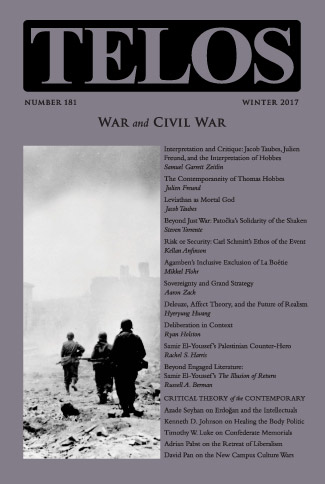It is difficult to know what constitutes the latest social media “scandal” for the news organizations that promote it as such. Of course, it follows the seemingly unending political concerns around social and digital media since the election of President Trump and other cornerstone events such as the Brexit vote. It stands in the long line of concerns about email hacking, Russian “meddling,” “fake news,” undignified presidential tweeting, and bots, and the indictments of workers of a Russian internet agency. There is the more general, but somewhat vacuous, thesis that the “politics of truth” has been replaced by a “politics of untruth.” Within this framing, there is the sense that “democracy” is under attack through social media; that populists, the “alt-right,” shady billionaire donors, foreign authoritarians and nativist Svengalis have found secret pathways to sow discontent within Western democracies and tip elections and plebiscites to previously unconscionable leaders and unimaginable outcomes.
|
Hyeryung Hwang’s “Deleuze, Affect Theory, and the Future of Realism” appears in Telos 181 (Winter 2017). Read the full article at the Telos Online website, or purchase a print copy of the issue in our online store. Individual subscriptions to Telos are now available in both print and online formats. In this essay, I critically address the current prominence of affect theory and its close affiliation with the aesthetic absolute of high modernism. In doing so, I demonstrate how affect theory, which has been significantly influenced by Gilles Deleuze, relays a restrictive recognition of the functions of consciousness, representation, and agency as rigid codification, despotic power, and authoritative unity. Certain issues arise when affect theory registers itself as a promising and effective political theory, and I address these issues by investigating Deleuze’s discussion of affect in his various texts on aesthetics and politics. Telos 181 (Winter 2017): War and Civil War is now available for purchase in our store. The following paper was presented at the conference “After the End of Revolution: Constitutional Order amid the Crisis of Democracy,” co-organized by the Telos-Paul Piccone Institute and the National Research University Higher School of Economics, September 1–2, 2017, Moscow. For additional details about the conference as well as other upcoming events, please visit the Telos-Paul Piccone Institute website. This presentation compares two societies, which, although both claim to be “Western” as well as vibrant liberal democracies, are in many aspects quite different. Those societies have been shaped by their history and political culture to evolve in quite different directions. Nevertheless, they can both be seen as “post-revolutionary” societies. Poland has had a very checkered history, from being a Great Power, to disappearing from the map of Europe, which has contributed to a strongly “erotic” sense of belonging among the Poles. Poland after 1989—the so-called Third Republic—has been in the difficult process of attempting a restoration of a more traditional Polish society, whose organic evolution and development had been so cruelly interrupted since 1939. At the root of what is now happening in Catalonia there are various diagnostic errors. Those who wish to manage the issue as that of legality and public order are radically mistaken in their failure to see in it an eminently political problem, requiring all the imaginative force of political reason. The mere guardians of legality are unaware either of such creativity or of the diplomatic acumen called for in especially complex conflicts. Technocratic management is impotent there, where what is at stake is identity itself with its acute affective dimension, the emotion saturating one’s belonging or non-belonging to a group. Therefore, the source of the current crisis surpasses its historical and geographical context and goes to the conflation of the political and the nonpolitical, which may be unnoticed in periods of “normalcy,” though not in exceptional, dangerous and decisive situations. The following essay was originally published in French at Le Figaro Vox on July 14, 2017, and is published here by permission. Translated by Russell A. Berman. In the night of April 4, 2017, in Paris, Sarah Halimi, a 65-year-old Jewish woman, was savagely killed. Her murderer, Kobili Traoré, a radicalized Muslim with a Malian background and a long police record, assaulted her for forty minutes, first in her living room and then on her balcony. He shouted “Allah Akbar,” while degrading his victim, called her a “fat whore” and a “shaitan” (a demon in Arabic). From their windows and later from the courtyard, several neighbors heard and then witnessed, in disgust, the massacre. In Noémie Halioua’s excellent article in Causeur, she reports the testimony of one of them: “First I was woken by the moans of a creature in suffering. It was torture. First, I thought it was an animal or a baby. But then, lifting the blinds and opening the window, I recognized that it was a woman moaning as she was being beaten. With each blow, I heard a moan; she did not even have the strength to cry out anymore.” Kobili Traoré strikes her so hard that his fist is swollen. When he sees the light of the police flashlights in the courtyard, he yells, “watch out, there is a woman here about to commit suicide,” as he seizes his victim, still alive, by her wrists and throws her over the banister of her balcony. Sarah Halimi lays in the courtyard, dead, covered in blood. |
||||
|
Telos Press Publishing · PO Box 811 · Candor, NY 13743 · Phone: 212-228-6479 Privacy Policy · Data Protection Copyright © 2024 Telos Press Publishing · All Rights Reserved |
||||



